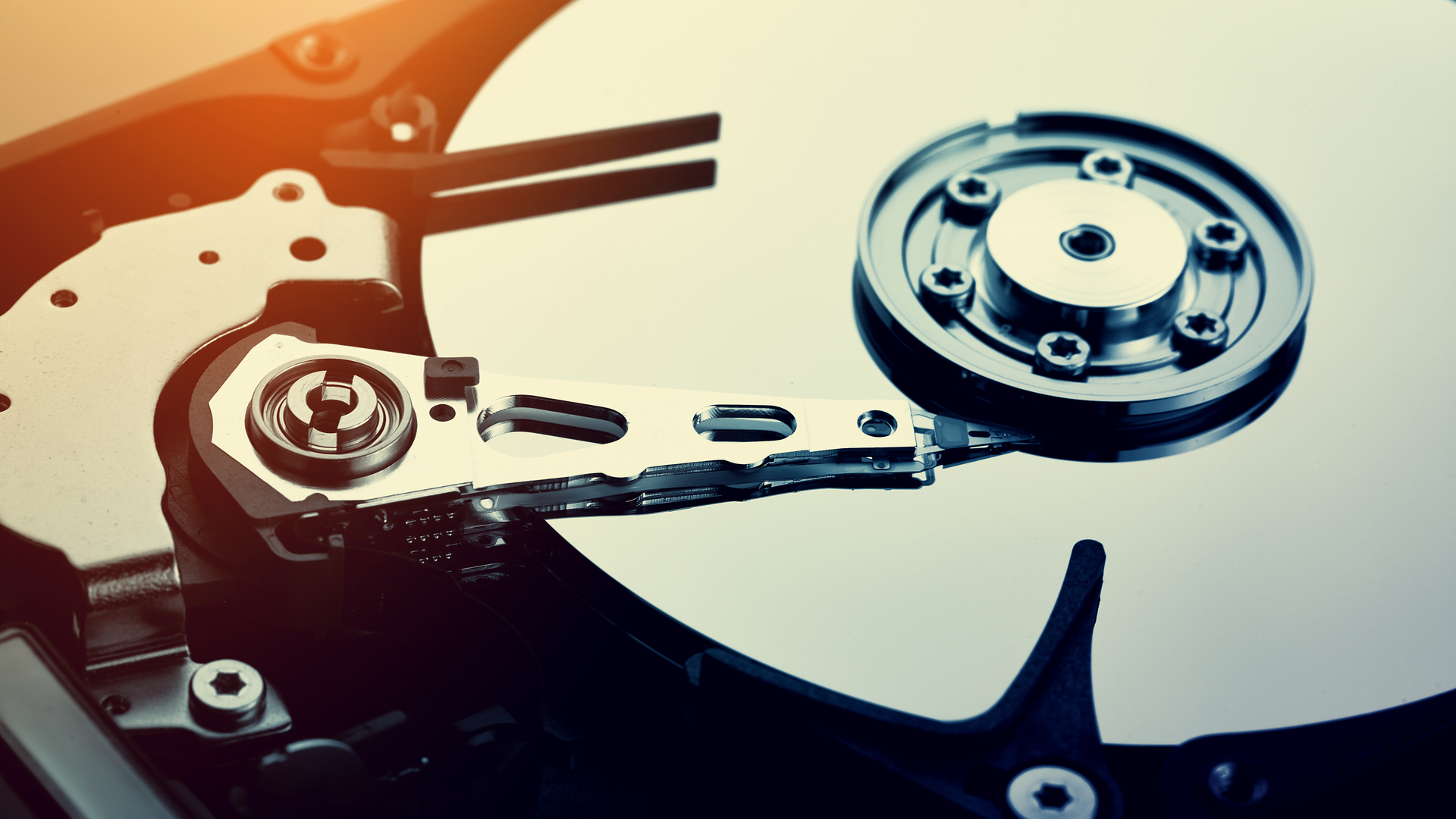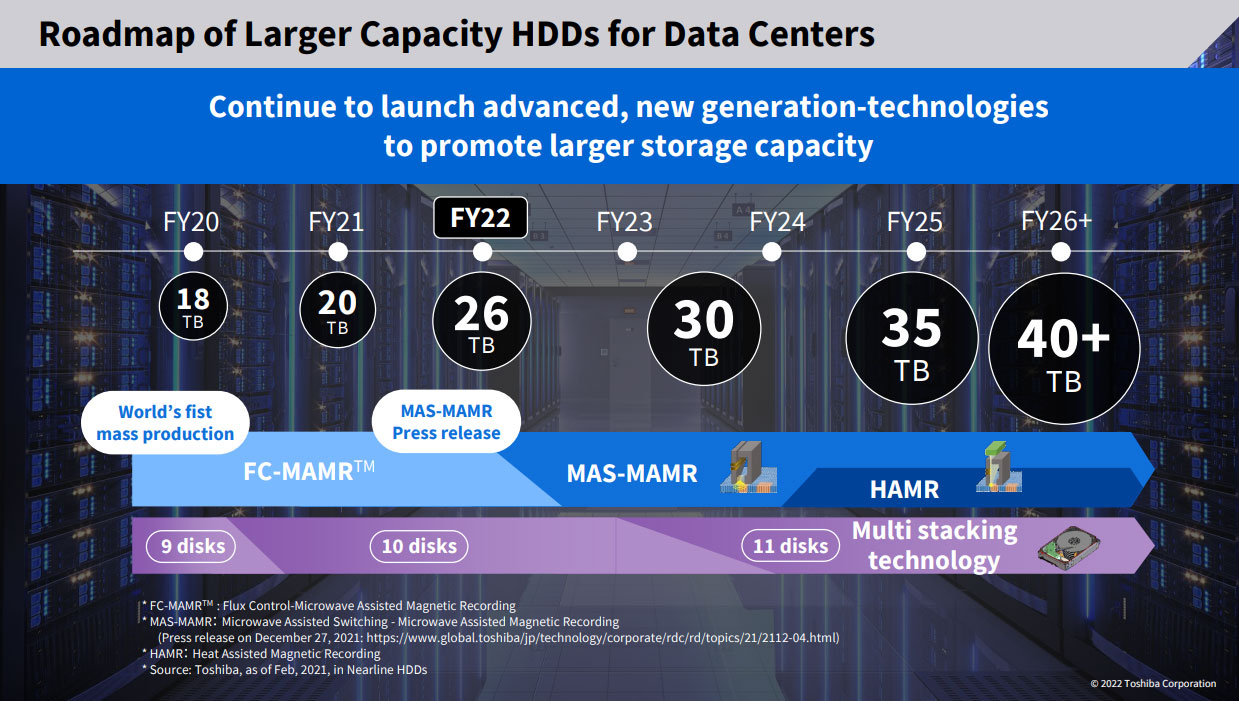Forget 20TB hard disk drives, 30TB models are coming way sooner than you think
Toshiba says it can deliver 30TB hard drives by 2024

Toshiba has announced it is on track to deliver a series of significant hard drive capacity increases over the next handful of years.
Investors and analysts were told that the company will utilize proprietary recording technologies (FC-MAMR and MAS-MAMR) and disk stacking techniques to bump the capacity of its hard drives significantly.
Although Toshiba’s latest models trail the competition in raw capacity terms, the company will aim to snatch the lead with 30TB hard drives delivered as early as 2024.

High capacity HDDs
As the volume of data produced by internet activity, digital devices and IoT sensors continues to expand at an aggressive rate, enterprises and cloud providers need to pack a larger quantity of data into the same physical footprint.
To do so, they’ll require large hard drives that achieve far greater storage density than current models, something Toshiba and its rivals are working hard to deliver.
The company’s current largest drive is an 18TB model, which lags behind the 20TB drives currently on offer from Western Digital and Seagate.
However, a chart presented by Toshiba shows that the firm intends to roll out a 10-platter 26TB hard drive based on microwave assisted switching MAMR (MAS-MAMR) by the end of fiscal year 2022, followed by an 11-platter 30TB model roughly one year later.
Sign up to the TechRadar Pro newsletter to get all the top news, opinion, features and guidance your business needs to succeed!
To pave the way for even more capacious drives, Toshiba intends to shift towards heat assisted magnetic recording (HAMR) technology. The company says it plans to offer its first 35TB HDD, based on HAMR, before 2026.
“Toshiba continues to work closely with the cloud companies to understand their capacity and performance requirements, and the ability to utilize our next-generation technologies will be key to meeting our customers’ needs,” said Ragfhu Gururangan, VP Engineering and Product Marketing at Toshiba America.
“Many years of close collaboration work with our key component suppliers is leading to impactful technology breakthroughs to achieve higher capacities, which ultimately reduces total cost of ownership (TCO) of our nearline HDDs.”
As noted by our sister site Tom’s Hardware, although these drives are positioned as enterprise models for nearline use cases, it’s possible technologies like MAS-MAMR and HAMR will trickle down into consumer-grade models in the years to come. But precisely when is difficult to say.
- Also check out our list of the best cloud storage services around
Via Tom's Hardware

Joel Khalili is the News and Features Editor at TechRadar Pro, covering cybersecurity, data privacy, cloud, AI, blockchain, internet infrastructure, 5G, data storage and computing. He's responsible for curating our news content, as well as commissioning and producing features on the technologies that are transforming the way the world does business.